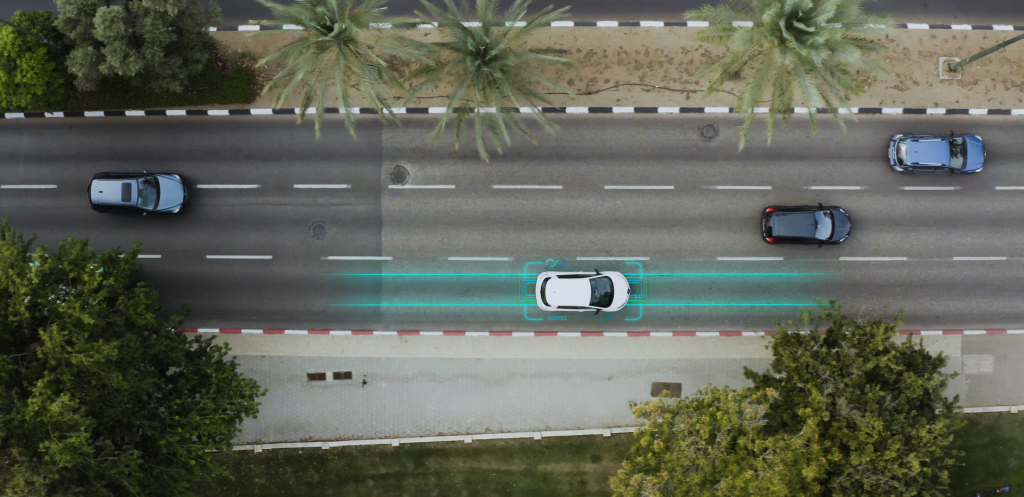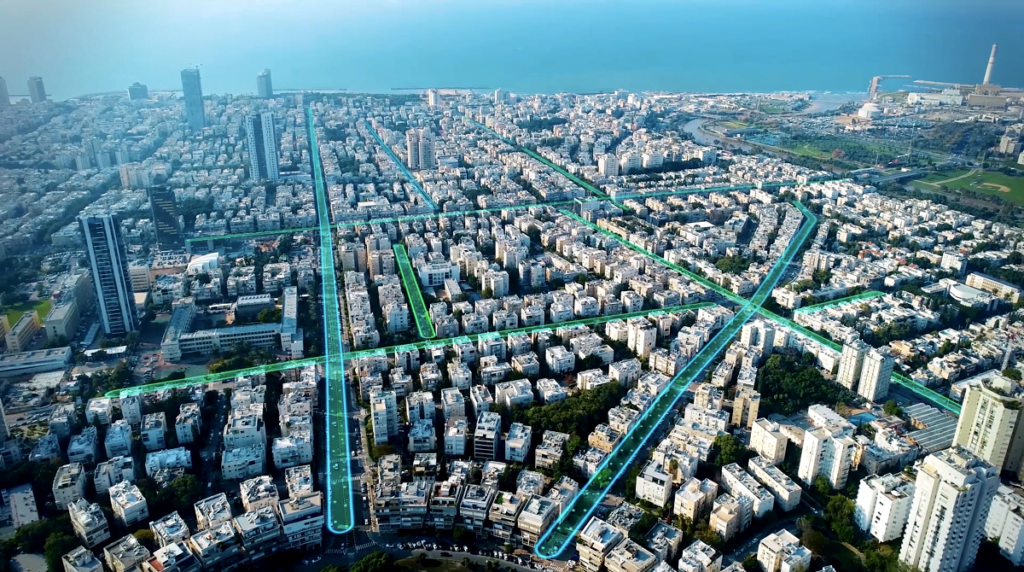ElectReon, the Israeli startup that provides wireless and in-road electric vehicle (EV) charging technology, is set to deploy its first public wireless EV charging road system in the US. The electric road startup will establish wireless charging tech in Detroit, Michigan.
The company announced last week they had won a request for proposal (RFP) to build an Electric Road System (ERS) in Detroit, as part of the inductive vehicle charging pilot program in partnership with the Michigan Department of Transportation (MDOT), the Michigan Office of Future Mobility and Electrification (OFME) and the Michigan Economic Development Corp. (MEDC).
The wireless charging infrastructure will support a suite of use cases involving various vehicle types and partners including autonomous vehicles. It will be implemented in the Michigan Central district as part of the Inductive Vehicle Charging Pilot initiative that Michigan Governor Gretchen Whitmer announced last year.

The Tel Aviv-based startup is working with companies like Detroit mobility tech firm Next Energy, carmaker Ford Motor Company, diversified energy company DTE, and technical professional services firm. Jacobs Engineering Group, to make the project happen.
Detroit is known as the center of the US automobile industry, and the “Big Three” auto manufacturers General Motors, Ford, and Stellantis North America are all headquartered in metropolitan Detroit. Detroit has taken on the nickname Motor City because its automotive industry provided the model for mass production that was later adopted by other industries.
The electrified road will stretch up to a mile long and will be located near Detroit’s Michigan Central Terminal, an abandoned train station that Ford is converting into a mobility innovation district. The state of Michigan plans to contribute $1.9 million to the project which ElectReon said will be fully functional by 2023.
The roadway will charge electric vehicles whether they’re in motion or at a stop through a process called inductive charging, which uses a magnetic frequency to transfer power from metal coils that are buried under the road to a special receiver on the underside of the EV.
“Hosting the first wireless charging road system in the US as part of the open platform we are providing at Michigan Central will serve as a magnet to attract innovators to test on this nationally significant asset joining in the work with ElectReon, Next Energy, and many others, and also show people the value electrification can create,” said Carolina Pluszcynski, the Michigan Central development director.

“We are excited to actively work with ElectReon and source pilot opportunities with such innovators to leverage the open wireless charging system,” she adds.
“This is a monumental step towards expanding our U.S. presence and team, and it’s exciting to start in the birthplace of the modern automobile industry. We plan to build on ElectReon’s proven track record of success globally, and demonstrate its ability to help the U.S. realize its electrification and emissions reduction goals,” said Oren Ezer, CEO of ElectReon.
Debut in the US
Founded in 2013, ElectReon has developed a system to charge electric vehicles (EVs) while in full motion using copper coils placed under the middle lane of the road. The coils are covered by the pavement and powered by an underground system with charging performed by a receiver or multiple receivers installed under the vehicle. Instead of carrying heavy batteries with a limited driving range and a short lifespan, electric vehicles would receive continuous power while being driven on these smart roads.
The company’s goal is to allow EVs to carry smaller batteries, or maybe none at all, making them lighter and more efficient, as well as reducing the environmental costs of battery production.
Sign up for our free weekly newsletter
SubscribeElectReon made its official entrance into the US market with the opening of the company’s Los Angeles office and the addition of Corey Johnson, former speaker of the New York City Council, as a strategic consultant to the New York region.
“We are excited to enter the US market and collaborate with industry leaders to further enhance the country’s mobility ecosystem,” said Stefan Tongur, vice president of business development, for ElectReon in the US, “Michigan’s automotive industry roots built a foundation for mobility innovation and we’re thrilled to join this community of experts. We are looking forward to collaborating with departments of transportation, state, and municipal agencies, and automotive and mobility industry innovators in Michigan, California, and New York on charging infrastructure that’s vehicle agnostic and can be included in any electric vehicle. Our technology has the potential to support electric fleets of all types from public transit buses to delivery vans and long-haul trucks for logistics.”
Ongoing partnerships Europe and Israel
ElectReon has a number of partnerships in Europe in France, Belgium, Germany, and Sweden to pilot its smart road tech with long-haul trucks, as well as a program in Tel Aviv with the Dan Bus Company for wireless charging of electric buses.
The pilot in Tel Aviv is the first of its kind in Israel and will be carried out between Tel Aviv University Railway Station and Klatzkin Terminal in Ramat Aviv – a two-kilometer route including 600 meters of electric road.
The Tel Aviv pilot project will enable specially-equipped electric buses, capable of being charged directly from under-road electric infrastructure, to travel on the route. Within two months following the completion of tests and integration of the technology, an electric bus will commence regular journeys on the route, serving passengers traveling to Tel Aviv University.

In December, the inductive charging tech provider announced the launch of the “Arena of the Future” project in Brescia, Italy where the company has integrated its wireless technology to charge an IVECO bus and Stellantis’s Fiat Nuova 500 passenger vehicle while driving. This project is demonstrating contactless charging for a range of EVs as they drive on highways and toll roads as a potential pathway to decarbonizing long-haul transportation systems along motorway transport corridors, a statement from the company said.
The construction and technical implementation of the 1,050-metre-long circuit equipped with ElectReon’s proprietary in-road charging coils and supported by 1MW of electrical power have been successfully completed, the company said.
In August, ElectReon announced former Israeli president Reuven Rivlin would join the startup as company president.
ElectReon was also listed in the transportation category of the TIME annual compilation of “100 Best Inventions.” It was one of four Israeli companies that made the list.
“As we rapidly scale our deployments around the world, we envision this technology to play a key role in accelerating the mass transition toward total electrification and we look forward to continuing to build the transportation infrastructure of tomorrow with the ongoing outstanding support from our industry and governmental partners we have experienced until now,” said Ezer in November.
Related posts

Editors’ & Readers’ Choice: 10 Favorite NoCamels Articles

Forward Facing: What Does The Future Hold For Israeli High-Tech?

Impact Innovation: Israeli Startups That Could Shape Our Future




Facebook comments